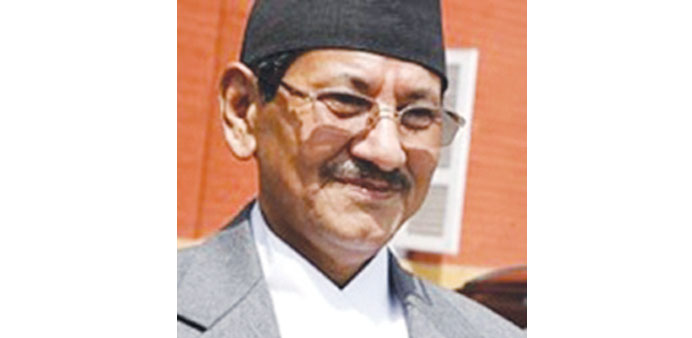Nepal’s supreme court has deferred the case of the chief justice, who was proposed by the political parties to be the interim prime minister of Nepal, by one week to March 14.
The apex court was supposed to deliver the final verdict pertaining to a constitutional question on whether the chief justice can lead an interim election government or not.
“The case was deferred, as there is one more writ petition filed at the apex court. Hearing for both the petitions will be held together,” Bharat Jangam, the first writ petitioner said on Thursday.
Jangam defended his petition at a special bench of Justices Kalyan Shrestha, Girish Chandra Lal Das and Sushila Karki.
He told the court that it is entirely unconstitutional to appoint the chief justice as the
executive head of the country.
“The government cites Article 106 of the constitution as the basis for the appointment. But, that particular article has no mention about appointing the chief justice as the executive head,” Jangam said.
The second petitioner, Om Prakash Aryal, who will present his logics to the court next week, said, his arguments will be based chiefly on the principle of separation of power between judiciary and the executive.
“On constitutional basis, chief justice does not qualify for the post of prime minister. Political parties are attempting to misinterpret Article 106 of the constitution,” Aryal said.
“Article 106 (1) prevents a sitting chief justice to hold the position of executive head, while Article 106 (2) bars even a former chief justice to hold the position of prime
minister,” he said.
More than two dozens of lawyers are arguing for and against the case, which has drawn attention of the whole country and will also decide the future course of Nepali politics.
Having failed to form a unity government, Nepal’s political parties last month agreed for an interim government to be led by the sitting Chief Justice Khil Raj Regmi.
The interim body will have the mandate of holding the second constituent assembly elections in June this year, according to the parties’ proposal.
Regmi was initially hesitant, but later conditionally accepted the offer saying that he would have no problem once the supreme court tests or interprets the constitutionality of the proposal.

